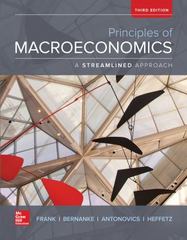Question
a.Determine the free cash flows associated with the project. The FCF in year 0 is _____ (Round to the nearest dollar.) The FCF in year


a.Determine the free cash flows associated with the project.
The FCF in year 0 is _____ (Round to the nearest dollar.)
The FCF in year 1 is _____ (Round to the nearest dollar.)
The FCF in year 2 is _____ (Round to the nearest dollar.)
The FCF in year 3 is _____ (Round to the nearest dollar.)
The FCF in year 4 is _____ (Round to the nearest dollar.)
The FCF in year 5 is _____(Round to the nearest dollar.)
b.The net present value (NPV) of the project is ______ (Round to the nearest dollar.)
c.The profitability index (PI) of the project is ______(Round to three decimal places.)
d.The internal rate of return (IRR) of the project is ______(Round to two decimal places.)
e.Should Traid accept this new project?
(Related to Checkpoint 12.1) (Comprehensive problem-calculating project cash flows, NPV, PI, and IRR) Traid Winds Corporation, a firm in the 31 percent marginal tax bracket with a required rate of return or discount rate of 11 percent, is considering a new project. This project involves the introduction of a new product. The project is expected to last 5 years and then, because this is somewhat of a fad product, it will be terminated. Given the following information, B, determine the free cash flows associated with the project, the project's net present value, the profitability index, and the internal rate of return. Apply the appropriate decision criteria. 2 Cost of new plant and equipment: Shipping and installation costs: Unit sales: $15,000,000 $220,000 Year 1 2 Units Sold 75,000 115,000 115,000 85,000 75,000 3 4 5 Sales price per unit: Variable cost per unit: Annual fixed costs: Working-capital requirements: $330/unit in years 1 through 4, $280/unit in year 5 $120/unit $750,000 There will be an initial working capital requirement of $210,000 to get production started. For each year, the total investment in net working capital will be equal to 9 percent of the dollar value of sales for that year. Thus, the investment in working capital will increase during years 1 through 3, then decrease in year 4. Finally, all working capital is liquidated at the termination of the project at the end of year 5. Use the simplified straight-line method over 5 years. It is assumed that the plant and equipment will have no salvage value after 5 years. The depreciation method: (Related to Checkpoint 12.1) (Comprehensive problem-calculating project cash flows, NPV, PI, and IRR) Traid Winds Corporation, a firm in the 31 percent marginal tax bracket with a required rate of return or discount rate of 11 percent, is considering a new project. This project involves the introduction of a new product. The project is expected to last 5 years and then, because this is somewhat of a fad product, it will be terminated. Given the following information, B, determine the free cash flows associated with the project, the project's net present value, the profitability index, and the internal rate of return. Apply the appropriate decision criteria. 2 Cost of new plant and equipment: Shipping and installation costs: Unit sales: $15,000,000 $220,000 Year 1 2 Units Sold 75,000 115,000 115,000 85,000 75,000 3 4 5 Sales price per unit: Variable cost per unit: Annual fixed costs: Working-capital requirements: $330/unit in years 1 through 4, $280/unit in year 5 $120/unit $750,000 There will be an initial working capital requirement of $210,000 to get production started. For each year, the total investment in net working capital will be equal to 9 percent of the dollar value of sales for that year. Thus, the investment in working capital will increase during years 1 through 3, then decrease in year 4. Finally, all working capital is liquidated at the termination of the project at the end of year 5. Use the simplified straight-line method over 5 years. It is assumed that the plant and equipment will have no salvage value after 5 years. The depreciation methodStep by Step Solution
There are 3 Steps involved in it
Step: 1

Get Instant Access to Expert-Tailored Solutions
See step-by-step solutions with expert insights and AI powered tools for academic success
Step: 2

Step: 3

Ace Your Homework with AI
Get the answers you need in no time with our AI-driven, step-by-step assistance
Get Started


